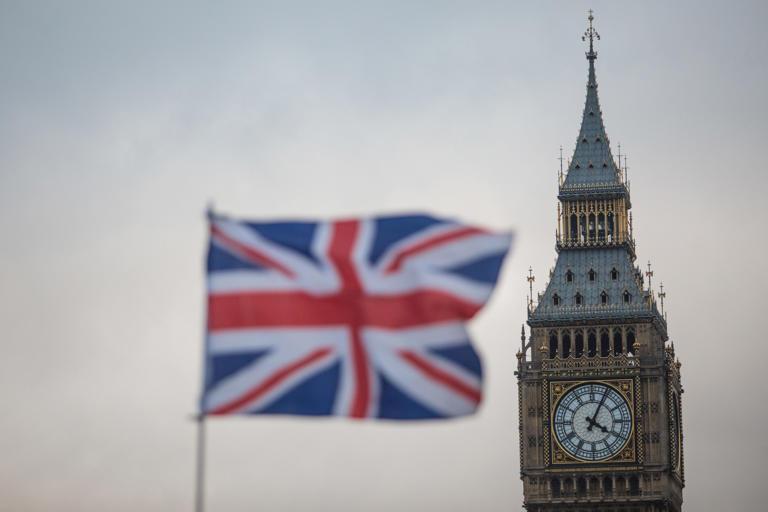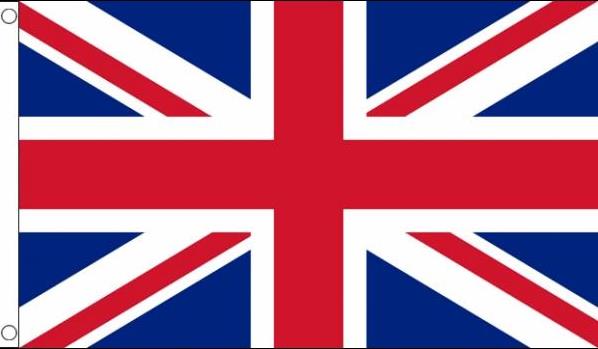




Everything For The Metal Detectorist - Origins of Nicknames


Nicknames for Brits
Flag of England

Irish Flag
Flag Menu
Union Flag
Copyright All Rights Reserved by Nigel G Wilcox E-Mail: ngwilcox100@gmail.com
The Paragon Of Metal Detecting
& Archaeology
& Archaeology
5. Menu
Pages
Nicknames for Brits: From Limey to Pom - here’s what people from the UK are called around the world and why
Story by Kurtis Leyland • 20.07.23 [ 20:42:37] mse.co/NationalWorld
People from the United Kingdom have been given many different nicknames throughout history such as tommy, limey and pom - but what do they mean?

(Getty Images)
For better or worse, the United Kingdom has had an impact on countries across the globe, earning the British various nicknames from many different nations, such as tommy, limey and pommy.
A nickname or a short name is a replacement for the proper name of a person, place or thing which is often used as a form of affection and amusement. Although in some cases it can also be used in a derogatory way, depending on the context of a particular situation.
A nickname or a short name is a replacement for the proper name of a person, place or thing which is often used as a form of affection and amusement. Although in some cases it can also be used in a derogatory way, depending on the context of a particular situation.
Many of the nicknames for British people are an example of this and they can give us an insight into the historical relationships between the UK and other countries around the world.
With that in mind we take a look at some of the most popular nicknames for British people and where they are derived from.
What are some of the most popular nicknames for the United Kingdom?
Brit - Worldwide
The term Brit is a commonly used slang term for a person from the UK, which is often used in North America, Republic of Ireland and many other countries.
Brit is a shortened term for Briton and Britisher which was formerly used in North America, although it has become outdated.
Limey - USA
Limey is a nickname which is used to describe a British person.
Its roots come from the British navy’s use of lime juice to cure scurvy during the 19th century - earning them the nickname of Lime Juicers among American sailors who didn’t know or believe in the preventative treatment.
The word was later shortened to limeys as slang for a British sailor or warship.
The term had its heyday in the 20th century in America and was extended to mean any British person. The term was so common that it even featured in American newspaper headlines during the 1920s.
Pommy or Pom - Australia, New Zealand and South Africa
The terms pommy, pommie and pom have commonly been used to describe a British person in Australia, South Africa and New Zealand.
There are many theories behind the origins of the word and some claim it was used to describe a newly-arrived British immigrant during the 1800s.
The most widely accepted theory states that the word is an abbreviation of pomegranate and it is used to describe a fair skinned British person who burns easily in the sun.
Tans or Black and Tans - Republic of Ireland and Northern Ireland
The Black and Tans were constables recruited by Great Britain in the 1920s by David Llyold George during the Irish War of Independence.
The nickname arose from the improvised uniforms that the British typically wore which consisted of dark tunics and caps and khaki army trousers.
The term has negative connotations due to the violence that occurred during this period and by extension the UK is sometimes referred to as Tanland.
Guiri - Spain
The word Guiri became popular in Spain during the 1960s when tourism began to bring in thousands of travellers.
The term is often used to describe uncouth tourists, particularly from the United Kingdom and in some cases can be used as an insult.
Guiri has also been used to describe tourists from other North European countries and in most cases it is seen as a lighthearted term of endearment for tourists.
Le Rosbif - France
The English have long joked about the French by referring to them as frogs and the French equivalent is calling English people Rosbif which translates as roast beef.
The word was not intended as an offence originally and was seen as a way of characterising traditional eating habits in the UK. But some linguistics suggest that the term has connotations to the heated disagreements between the UK and France over British beef.
Tommy
The name Tommy for any soldier in the British Army is particularly associated with World War I. The German, the French and the British Commonwealth armies used the name "Tommy" for British soldiers. "Tommy" is derived from the name "Tommy Atkins" which had been used as a generic name for a soldier for many years (and had been used as an example name on British Army registration forms). The precise origin is the subject of some debate, but it is known to have been used as early as 1743. Rudyard Kipling published the poem "Tommy" (part of the Barrack Room Ballads) in 1892 and in 1893 the music hall song "Private Tommy Atkins" was published with words by Henry Hamilton and music by S. Potter. In 1898 William McGonagall wrote "Lines in Praise of Tommy Atkins". The term is still used today in the British Army in the abridged version "Tom", especially in the Infantry Regiments, to specifically refer to a junior enlisted soldier.
Other terms:
Brit
Britisher
Britling
Limey
Pommy or pom
Tommy
Britanoodles
Britches and socks
The term Brit is a commonly used slang term for a person from the UK, which is often used in North America, Republic of Ireland and many other countries.
Brit is a shortened term for Briton and Britisher which was formerly used in North America, although it has become outdated.
Limey - USA
Limey is a nickname which is used to describe a British person.
Its roots come from the British navy’s use of lime juice to cure scurvy during the 19th century - earning them the nickname of Lime Juicers among American sailors who didn’t know or believe in the preventative treatment.
The word was later shortened to limeys as slang for a British sailor or warship.
The term had its heyday in the 20th century in America and was extended to mean any British person. The term was so common that it even featured in American newspaper headlines during the 1920s.
Pommy or Pom - Australia, New Zealand and South Africa
The terms pommy, pommie and pom have commonly been used to describe a British person in Australia, South Africa and New Zealand.
There are many theories behind the origins of the word and some claim it was used to describe a newly-arrived British immigrant during the 1800s.
The most widely accepted theory states that the word is an abbreviation of pomegranate and it is used to describe a fair skinned British person who burns easily in the sun.
Tans or Black and Tans - Republic of Ireland and Northern Ireland
The Black and Tans were constables recruited by Great Britain in the 1920s by David Llyold George during the Irish War of Independence.
The nickname arose from the improvised uniforms that the British typically wore which consisted of dark tunics and caps and khaki army trousers.
The term has negative connotations due to the violence that occurred during this period and by extension the UK is sometimes referred to as Tanland.
Guiri - Spain
The word Guiri became popular in Spain during the 1960s when tourism began to bring in thousands of travellers.
The term is often used to describe uncouth tourists, particularly from the United Kingdom and in some cases can be used as an insult.
Guiri has also been used to describe tourists from other North European countries and in most cases it is seen as a lighthearted term of endearment for tourists.
Le Rosbif - France
The English have long joked about the French by referring to them as frogs and the French equivalent is calling English people Rosbif which translates as roast beef.
The word was not intended as an offence originally and was seen as a way of characterising traditional eating habits in the UK. But some linguistics suggest that the term has connotations to the heated disagreements between the UK and France over British beef.
Tommy
The name Tommy for any soldier in the British Army is particularly associated with World War I. The German, the French and the British Commonwealth armies used the name "Tommy" for British soldiers. "Tommy" is derived from the name "Tommy Atkins" which had been used as a generic name for a soldier for many years (and had been used as an example name on British Army registration forms). The precise origin is the subject of some debate, but it is known to have been used as early as 1743. Rudyard Kipling published the poem "Tommy" (part of the Barrack Room Ballads) in 1892 and in 1893 the music hall song "Private Tommy Atkins" was published with words by Henry Hamilton and music by S. Potter. In 1898 William McGonagall wrote "Lines in Praise of Tommy Atkins". The term is still used today in the British Army in the abridged version "Tom", especially in the Infantry Regiments, to specifically refer to a junior enlisted soldier.
Other terms:
Brit
Britisher
Britling
Limey
Pommy or pom
Tommy
Britanoodles
Britches and socks
Powered By Sispro1
Designed by Nigel G Wilcox
Member NCMD

Remember the Union flag pattern, some will place the flag upside down through ignorance or this can be a sign or signal for distress...




















